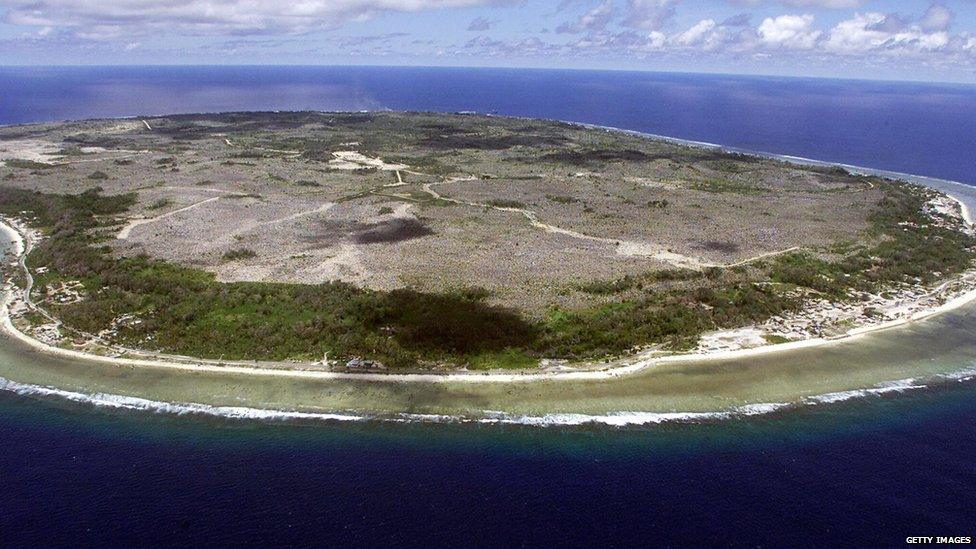Human rights groups call for children to be taken off Nauru
- Published
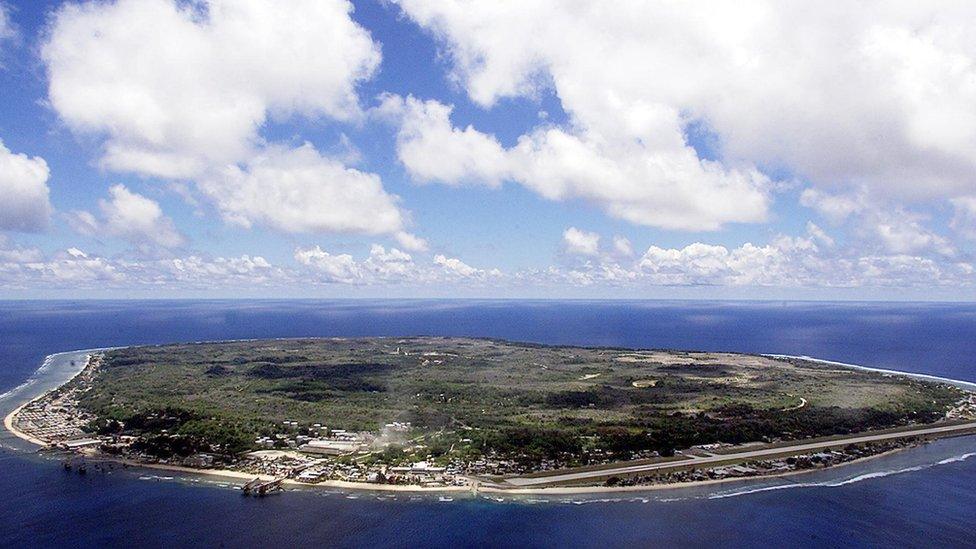
Nauru is a tiny island in the Pacific, north-east of Australia
A group of human rights organisations has demanded the Australian government remove all child asylum seekers held on the Pacific island of Nauru.
It comes as reports of a 12-year-old boy on a weeks-long hunger strike fuelled fresh fears about their health.
The #KidsOffNauru coalition wants the 119 children on the island resettled by November.
Australia's controversial offshore detention policy has been criticised for its toll on asylum seekers.
The facility on Nauru was established under the country's hardline immigration policy, which sees asylum seekers who try to reach the country by boat processed at offshore centres.
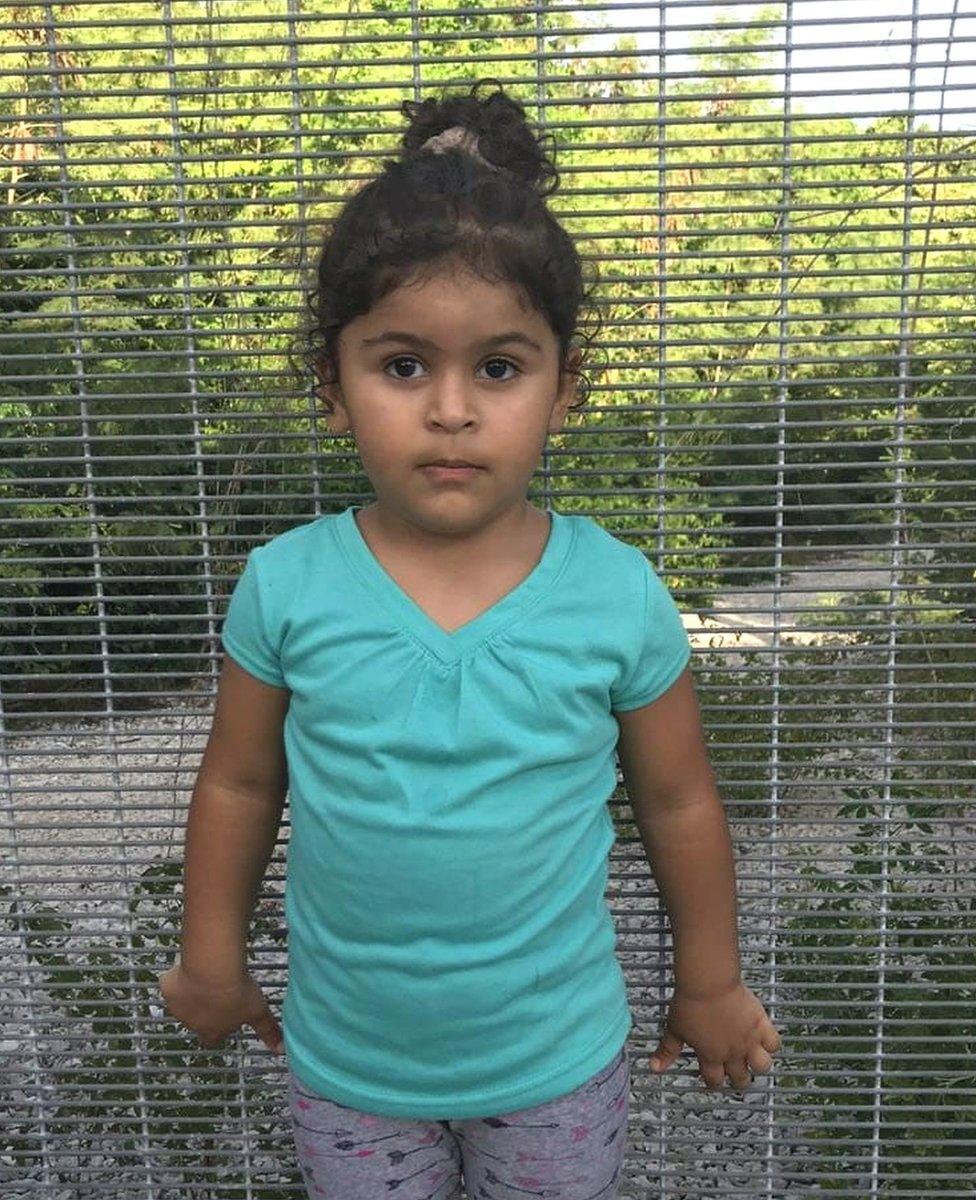
A World Vision image of Melanie, three, an asylum seeker in Nauru
The centre on Nauru has been dogged by allegations of widespread abuse and trauma among children and women.
The 'clock is ticking'
The coalition of more than 30 charities and advocacy groups, including World Vision Australia and Oxfam Australia, wants all children moved to Australia or settled in a safe country elsewhere.
Chief executive of World Vision Australia Claire Rogers said the children on Nauru have "no hope".
"Many of them have lived for years in tents, they have been separated from close family members and have no safe place to play or access to acceptable medical care."
"The clock is ticking. This harmful, secretive and dysfunctional system of indefinite detention must end," Ms Rogers said.
The Australian government did not respond to the BBC's requests for comment.
Hunger strikes
Allegations of human rights abuses and overcrowding have plagued Australia's detention centre in Nauru for years.
The mental toll on young people is drawing increasing focus and includes reports of suicide attempts.
The issue attracted fresh concern last week with news of the 12-year-old on hunger strike - a boy from Iran.
Ian Rintoul, spokesperson for the Refugee Action Coalition, said the child has now been on a hunger strike for around 19 days. Efforts were being made to transfer him to Australia for urgent medical care.
Access to Nauru is difficult - with foreign journalists hampered by the $8,000 Australian dollar ($5,850; £4,591) non-refundable charge per visa application.
Advocacy groups say families live squalid conditions, in mouldy tents with dirty bathroom facilities. Children have few places to play on the island.
The tiny nation in the Pacific is around 53km from the equator, and covered in phosphate rocks.
The facility currently holds more than 240 men, women and children, according to AFP news agency, and is an economic lifeline for the isolated nation.
- Published2 April 2018
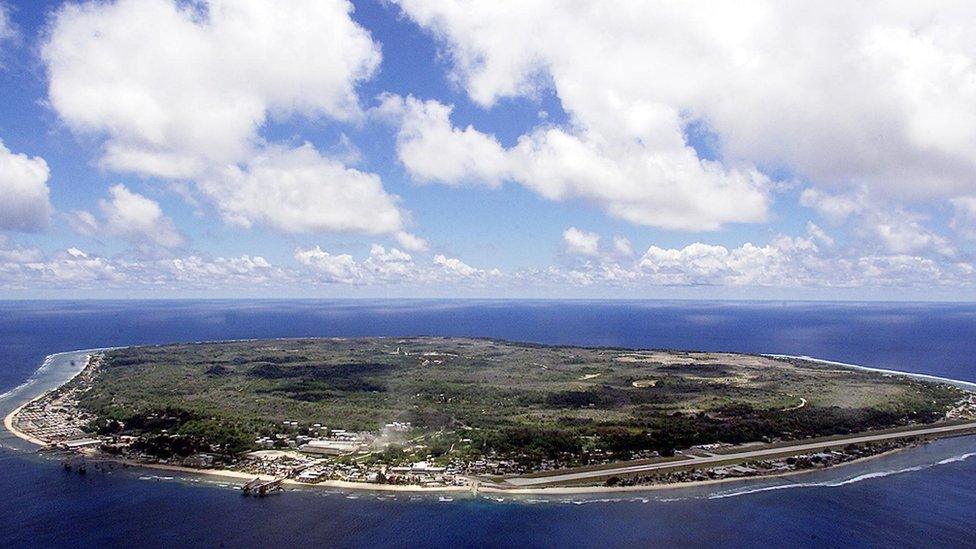
- Published26 September 2017
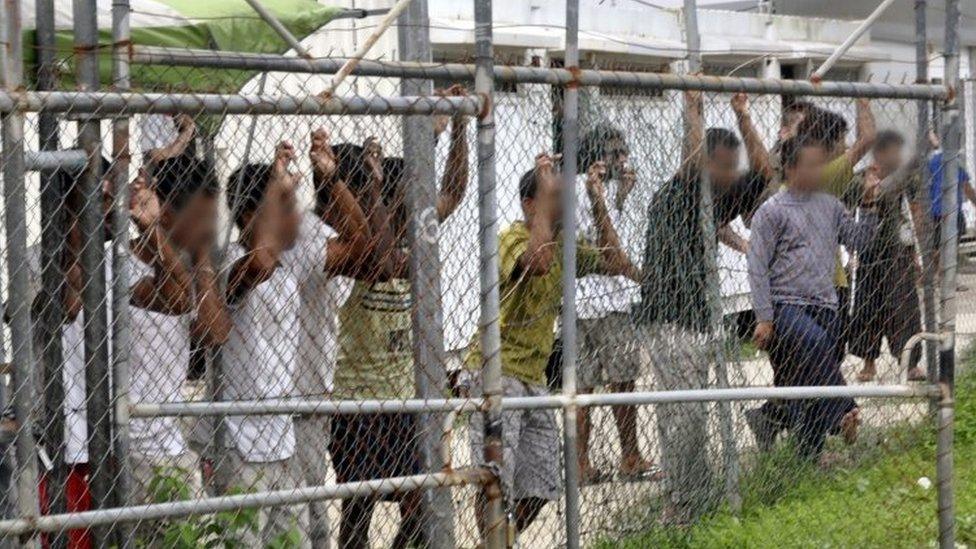
- Published10 August 2016
